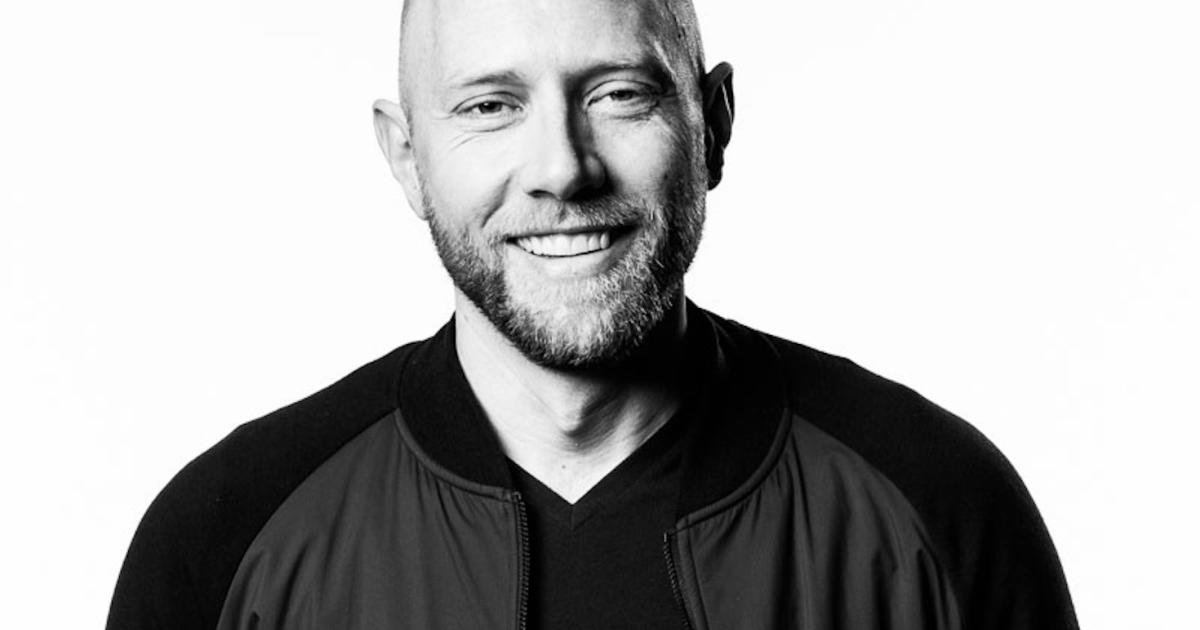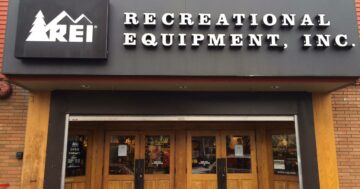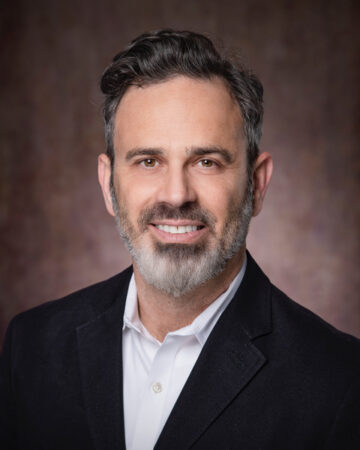
Microsoft is often cited as a leader when it comes to transitioning to net-zero business operations. It has been carbon neutral since 2012 and has committed to be carbon negative by 2030 — seeking to remove from the environment an equivalent of all of the carbon it has emitted directly or through electrical consumption since its founding in 1975.
Why has Microsoft been ahead of the curve in understanding and acting to address climate change? One reason is that it listened to climate scientists. But the company didn’t stop at listening to the scientists, it hired them and empowered them to think about Microsoft’s future 50 years out and the role environmental science will play in Microsoft’s future. Microsoft also provided those individuals with the resources (including an $1 billion climate innovation fund) to advance Microsoft’s and society’s environmental management capabilities through research and development.
One scientist Microsoft listened to is Lucas Joppa, who joined the company as a computational ecologist armed with a doctorate in ecology. Joppa eventually became Microsoft’s first chief environmental scientist and latter Microsoft’s first chief environmental officer.
Why would someone leave what could only be described as a dream job? To normalize net-zero operations across a portfolio of companies. That’s what Lucas Joppa hopes to do in his new role as chief sustainability officer and senior managing director at Haveli Investments, a private equity firm launched by billionaire Brian Sheth that invests in enterprise software and gaming companies.
I spoke with Joppa about why it’s possible for “normal” companies to achieve net-zero commitments and why digital technology is so essential for a shift to the “planet economy.” This interview has been edited for length and clarity.
Nico McCrossan: Describe what is different about this role as an investor compared to your previous role working for a large corporation.
Lucas Joppa: I think in some ways, my new role at Haveli is very similar to my old role at Microsoft. It’s still in the tech sector. It’s still focusing on enterprise software. That’s what we invest in. That’s what Microsoft builds. And a lot of it has to do with how you operate companies differently. How do you operate companies for growth that’s positive from a profit perspective but also positive for the planet?
And so the operation of a company, from what it builds to how it builds it, and its governance structures, and all of that is something that I learned in one of the largest [and most successful] companies in the history of the world, Microsoft … But I really wanted to find a way to scale its application beyond what one company can do. And that’s really where a significant difference between Microsoft and my new role lies. In Microsoft, I got to focus really intensely on the operations of one company, and at Haveli, I get to try to scale that in parallel across a portfolio of 12 to 15 companies in any one of our funds.
So the ultimate contribution an individual can hope to make is to show that this is possible. And to do that in steps that increasingly normalize it across this greater kind of portfolio, global portfolio of companies that all exist in the economy.
What I’m really motivated to do is to normalize the net-zero operations of a company. And I got to learn how you do that within a big company. What I always say is [that] Microsoft’s products have become normalized in our economies and societies, but Microsoft is not a normal company. I want to prove that you can normalize net zero just as we did at Microsoft across a whole host of companies of different shapes and sizes. That’s a huge difference between what I was doing at Microsoft and what I get to do at Haveli. The second thing is that at Microsoft, I did get to focus on investing, in some respects — [it has] a billion-dollar investment fund that I helped create and run. But that type of investing wasn’t the core of what Microsoft is as a company. And I started to see the transformative, but immature kind of nature of what the finance sector is going to have to bring to the world’s net-zero journey. And I just really wanted to be part of that in a much more kind of pure way. So being able to help lead investments — both in just enterprise software companies, but also hopefully, in what I would call sustainability software solution companies — is something that I get to do in a much more kind of pure investor way at Haveli.
McCrossan: That makes a lot of sense and actually follows something that I just hear a lot of the time in this role, which is that when Patagonia is used as an example, many companies just say, “That’s Patagonia.” That’s why we really want to see someone who’s not Patagonia who has done this because that’s more comparable, and lets us know if it’s possible for us, rather than just the one company that’s been incredibly successful at it.
Joppa: That’s right. There’s always going to be outliers. But net zero can’t be an anomaly. And that’s what I’m really motivated to prove. Look, I was exceptionally lucky and fortunate to have been at Microsoft at all, much less in the roles I got to exist in at the time I got to do those things, those jobs. But you can’t deny the fact that Microsoft is an abnormal company. And I felt like we’d helped change the narrative. I think we’d helped to increase the tailwind that sustainability and net-zero corporate commitments had but in some ways almost felt like we maxed out, or I had, the utility of what Microsoft could teach the world. Because at some point, people start saying exactly what you said, “Well, that’s Microsoft.” And I want to say, “OK, well, yeah, we did it at Microsoft. That’s cool. But we also did it here. And we also did it here. And we also did it here. And we also did it here.” And that’s what I want to do.
McCrossan: Would you say it’s increasing the impact, not just by scaling the solution at one company but by transferring the solutions to other entities basically?
Joppa: That’s right. Look, I don’t know how many companies there are in the world. But there’s a lot. There’s enough that I don’t know how many there are. So I would say when I was at Microsoft, I was scale limited in the sense that it was just one company. Now at Haveli, I get to operate across more companies, not one, but 10s. But still, one person can only touch so many companies at any one time or through the span of any one career. And the number that any one person can directly influence is basically an insignificant drop in the bucket relative to what the world needs to achieve from a net-zero perspective. So the ultimate contribution an individual can hope to make is to show that this is possible. And to do that in steps that increasingly normalize it across this greater kind of portfolio, global portfolio of companies that all exist in the economy.
McCrossan: I want to move onto something that you had mentioned last time we spoke, which was around you believing that the digital economy will become primarily focused on information about nature and the environment. So I was wondering if you could share more about what that means?
Joppa: I think that if you look at the current tech landscape, and you look at the top 10 companies in the world by market capitalization, you’re probably going to see social media companies, large public cloud companies and some search companies basically. And that’s great. They’re providing these incredibly valuable services, but they’re primarily trading in information about people.
But people are dependent on Earth’s natural resources for their cultures, for their societies and for their economies. And the digital technology penetration of the natural resource sector is remarkably low. If you ask the best informed person you know broad questions about what is where, how much is there and how fast it is changing — specifically about the natural resources, the food, the fiber, the fuel that support human economies and societies — you would by and large get kind of a blank stare back. At the very least, they would not be able to provide you that information with anywhere near the fidelity that we can provide you [with] information about the 25 Starbucks that are nearest to you, the activities of your 100 closest friends. You get where I’m going. But at the same time, these natural resources that our societies are predicated upon are under unprecedented pressure, and they’re starting to crack. So for me, it just seems like the most logically obvious conclusion that the world will turn to its digital technologies to gain that same sort of granular insight about the resources that we’re going to need to better manage in order to continue to grow the overall human experience on this planet. That just seems preordained.
I believe that over time, we will move from information about people to information about the planet economy. And that’s vast, and it’s much bigger than a lot of people might think when they think about sustainability.
I guess, in some respects, I believe that over time, we will move from information about people to information about the planet economy. And that’s vast, and it’s much bigger than a lot of people might think when they think about sustainability. I think oftentimes they think about carbon management platforms that might sit alongside your financial accounting platform inside a company and, for sure, that’s one piece of it. But carbon and other greenhouse gases that are required to be reduced and then removed to net zero, as part of our climate stabilization efforts, are just one of the natural resources or natural assets that the world is going to have to monitor, model and ultimately manage in a much more sustainable fashion. It just seems like the advent of digital technology — the internet, sensing and remote sensing … the access to larger-scale computing … and powerful algorithms — all of that’s going to come together to allow us to manage Earth’s systems … And if we do, that’s both good for people and the software inventors and investors that are in that space.
McCrossan: I’m curious, with these regulations going into effect and how you mentioned that all well-run companies have a solid accounting system in place, I’ve heard for some companies that want to go public who didn’t start setting up their accounting systems to go public from day one, that it can delay them for a few years. Is that something that we’re going to see with these new ESG disclosure rules? If so, is that going to create an opportunity in private equity for some of these players to develop core competencies of implementing these systems and companies, and then taking them public later?
Joppa: Well, that’s my core thesis. It’s just what I think; I don’t know it to be true. … Right now, there’s precious few, if any environmental regulations on these companies. In 2033, most of them will be held to regulatory scrutiny. That’s extremely rare for that seismic of a shift to happen in the life cycle of one funding cycle.
The only thing that I can think of that kind of matches that is GDPR, in the data privacy space, where it’s just like one day you wake up, and it’s fundamentally different. Now, if you’re a tech company, you probably already had somebody that was focusing on the issues related to GDPR, even if they weren’t the directly responsible individual for this thing that they didn’t even know what’s going to happen called GDPR. But most tech companies don’t have anybody working on sustainability.
So for an investment firm like Haveli to be able to say, “Look, we understand that you’re going to have to do this, we understand that you’re new on your journey, we are here to help.” We want to collaborate with you, we want to bring our deep experience in operating net-zero plans and companies to help you become prepared for this. … I do think that there will be a scarcity of net-zero companies in the 2030 to 2032 timeframe. I think scarcity draws demand. I’m not capable of putting a number on that from a value add perspective or anything, but I think it’s not bad to have figured out the governance, the controls and the net-zero outcomes before all of your competitors have.
- SEO Powered Content & PR Distribution. Get Amplified Today.
- PlatoAiStream. Web3 Data Intelligence. Knowledge Amplified. Access Here.
- Minting the Future w Adryenn Ashley. Access Here.
- Source: https://www.greenbiz.com/article/microsoft-private-equity-lucas-joppa-normalizing-planet-economy
- :has
- :is
- :not
- :where
- $UP
- 10
- 100
- 50
- 50 Years
- 8
- 9
- a
- Able
- About
- access
- Accounting
- Achieve
- across
- activities
- actually
- address
- advance
- advent
- ahead
- algorithms
- All
- alongside
- already
- also
- always
- an
- and
- any
- anywhere
- Application
- ARE
- armed
- around
- article
- AS
- Assets
- At
- back
- Bad
- Basically
- BE
- became
- because
- become
- been
- before
- being
- believe
- believing
- BEST
- Better
- between
- Beyond
- Big
- bigger
- billionaire
- boston
- both
- Brian
- bring
- broad
- builds
- business
- business operations
- but
- by
- call
- called
- CAN
- capabilities
- capable
- capitalization
- carbon
- Career
- change
- changing
- chief
- cited
- clarity
- Climate
- Climate change
- Cloud
- collaborate
- come
- committed
- Companies
- company
- comparable
- compared
- competitors
- computing
- conclusion
- consumption
- continue
- contribution
- controls
- Cool
- Core
- Corporate
- CORPORATION
- could
- crack
- create
- curious
- Current
- curve
- cycle
- data
- data privacy
- day
- deep
- delay
- Demand
- dependent
- describe
- described
- develop
- Development
- dialogue
- DID
- difference
- different
- digital
- Digital economy
- digital technologies
- digital technology
- directly
- Director
- disclosure
- do
- doing
- don
- dream
- Drop
- earth
- economies
- economy
- effect
- efforts
- emerging
- empowered
- enough
- Enterprise
- enterprise software
- entities
- Environment
- environmental
- equity
- Equivalent
- ESG
- essential
- Ether (ETH)
- Even
- Event
- eventually
- exactly
- example
- experience
- extremely
- Fashion
- FAST
- few
- fidelity
- figured
- finance
- financial
- Find
- Firm
- First
- Focus
- focused
- focusing
- follows
- food
- For
- fortunate
- founding
- friends
- from
- Fuel
- fund
- fundamentally
- funding
- funds
- future
- Gain
- gaming
- GDPR
- get
- Global
- Go
- going
- good
- governance
- great
- greater
- Grow
- Growth
- had
- happen
- Have
- hear
- heard
- Held
- help
- helped
- here
- history
- hope
- Hopefully
- hopes
- host
- How
- HTTPS
- huge
- human
- Human Experience
- i
- if
- Impact
- implementing
- in
- Including
- Increase
- increasing
- increasingly
- incredibly
- individual
- individuals
- influence
- information
- informed
- Innovation
- insight
- Internet
- Interview
- into
- Inventors
- Invest
- investing
- investment
- investment fund
- Investments
- investor
- Investors
- Invests
- issues
- IT
- ITS
- Job
- Jobs
- joined
- journey
- jpg
- june
- just
- just one
- Kind
- Know
- landscape
- large
- largest
- Last
- later
- launched
- lead
- leader
- LEARN
- learned
- Leave
- Length
- Lets
- lies
- Life
- like
- Limited
- Listening
- Look
- Lot
- Low
- make
- MAKES
- manage
- management
- managing
- Managing Director
- many
- Market
- Market Capitalization
- means
- Media
- mentioned
- Microsoft
- might
- model
- Monitor
- more
- most
- motivated
- move
- much
- NARRATIVE
- Natural
- Nature
- Near
- Need
- needs
- negative
- net
- net-zero
- Neutral
- New
- node
- normal
- now
- number
- obvious
- of
- Officer
- oftentimes
- Old
- on
- ONE
- only
- operate
- operating
- operation
- Operations
- Opportunity
- or
- order
- Other
- our
- over
- overall
- Parallel
- part
- Patagonia
- People
- person
- perspective
- piece
- Place
- planet
- plans
- platform
- Platforms
- plato
- Plato Data Intelligence
- PlatoData
- Play
- players
- Point
- portfolio
- positive
- possible
- powerful
- Precious
- premier
- prepared
- pressure
- previous
- primarily
- privacy
- private
- Private Equity
- probably
- Products
- Profit
- Prove
- provide
- provided
- providing
- public
- Public cloud
- Putting
- Questions
- RARE
- rather
- RE
- really
- reason
- Reduced
- regulations
- regulatory
- related
- remote
- remove
- Removed
- required
- research
- research and development
- resource
- Resources
- respects
- responsible
- right
- Role
- roles
- rules
- Run
- s
- Said
- same
- say
- Scale
- scaling
- Scarcity
- Science
- Scientist
- scientists
- Search
- Second
- sector
- see
- seeking
- seems
- senior
- sense
- Services
- setting
- shapes
- Share
- shift
- show
- significant
- similar
- since
- sizes
- So
- Social
- social media
- Software
- software solution
- solid
- solution
- Solutions
- some
- Someone
- something
- Space
- span
- specifically
- starbucks
- start
- started
- Starting
- Steps
- Still
- Stop
- successful
- support
- sure
- Sustainability
- sustainable
- system
- Systems
- Tailwind
- taking
- tech
- tech companies
- Tech Company
- Technologies
- Technology
- than
- that
- The
- the world
- their
- Them
- There.
- These
- they
- thing
- things
- Think
- this
- those
- Through
- time
- timeframe
- to
- together
- top
- Top 10
- touch
- Trading
- Transferring
- transformative
- transitioning
- Trends
- true
- TURN
- ultimate
- Ultimately
- under
- understand
- understanding
- unprecedented
- us
- used
- utility
- Valuable
- value
- Vast
- Ve
- very
- Wake
- Wake Up
- want
- wanted
- was
- Way..
- ways
- we
- WELL
- What
- What is
- when
- which
- WHO
- why
- will
- with
- within
- wondering
- working
- world
- would
- years
- you
- Your
- zephyrnet
- zero









